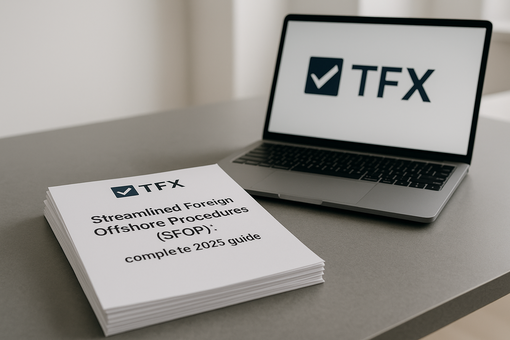Complete guide to Saudi Arabia tax rules for US expats

Saudi Arabia offers a tax-friendly environment with no personal income tax on earned income. However, as a US citizen or green card holder, you must still report your worldwide income to the IRS.
This guide to Saudi Arabia tax rules explains residency criteria, local taxes, and key US filing requirements it will help you stay informed and avoid costly mistakes while living or working in the Kingdom.
| Personal income tax | None; Saudi Arabia does not tax individuals on earned income. |
| Corporate income tax | 20% on profits for foreign-owned businesses. |
| Social security contributions (GOSI) | 22% total for Saudi nationals; 2% employer contribution for non-Saudis. |
| Self-employment income | No local personal income tax; US self-employment tax still applies. |
| Tax on foreign income | None; foreign income is not taxed in Saudi Arabia. |
| US-Saudi tax treaty | None; no agreement to avoid double taxation exists. |
| US tax filing requirements | US citizens must report worldwide income; automatic extension to June 16, 2025, for expats. |
Who can be considered a tax resident of Saudi Arabia?
In Saudi Arabia, you are considered a tax resident if you meet either of the following conditions:
- You have a permanent place of residence in Saudi Arabia and reside in the country for at least 30 days during the tax year.
- You are physically present in Saudi Arabia for 183 days or more during the tax year, regardless of whether you have a permanent residence.
The Saudi government issues residency permits, known as Iqamas, to expatriates who live and work legally in the country. Holding an Iqama is a strong indicator of residency status; however, the tax authorities also assess your physical presence and permanent home situation.
Taxes for individuals in Saudi Arabia
Taxes on personal income
Saudi Arabia does not impose a personal income tax on earned income for either residents or non-residents. This means that if you live and work in Saudi Arabia, your salary and wages are not taxed at the personal level – regardless of your citizenship.
Non-residents who earn income from sources within Saudi Arabia may be subject to a withholding tax. This applies to specific types of income, including rents, royalties, management fees, and technical service fees.
Social security contributions
Although there is no personal income tax, employers in Saudi Arabia must comply with payroll tax obligations through contributions to the General Organization for Social Insurance (GOSI). These contributions cover pension, social insurance, and unemployment insurance benefits.
For Saudi nationals employed in the private sector, the GOSI contribution rate is 22%: 10% is deducted from the employee’s salary, and 12% is paid by the employer.
For non-Saudi employees, the system is different. Employers are required to contribute 2% of the employee’s salary, covering occupational hazard insurance only. Non-Saudi employees are not required to make their own contributions.
Self-employment income
Saudi Arabia does not tax self-employment income at the personal level. If you are working as a freelancer or running your own consultancy while living in Saudi Arabia, your earnings are not subject to personal income tax.
However, if your freelance or self-employed activities generate income sourced from within Saudi Arabia and you do not have a formal business registration, specific rules might apply:
- If your business is formally registered or structured as an entity (such as an establishment or company), corporate income tax or Zakat may apply instead of personal tax.
- Freelancers working for Saudi clients may trigger withholding tax obligations for the Saudi companies paying them.
If you plan to operate as a freelancer in Saudi Arabia, you should formalize your status through the proper licensing channels to avoid legal and tax complications both in Saudi Arabia and with the Internal Revenue Service (IRS).
If you are self-employed or freelancing while living in Saudi Arabia, you are still required to report your income and pay self-employment taxes in the United States, even if your income is earned abroad.

Corporate taxes and business obligations
Corporate tax for foreign-owned businesses
In Saudi Arabia, corporate income tax applies primarily to companies that are foreign-owned. If a company has any non-GCC (Gulf Cooperation Council) ownership, it is generally subject to a 20% corporate income tax on its taxable profits.
Saudi and other GCC nationals' ownership portions are subject to Zakat, not corporate tax. Companies must file annual returns with the Zakat, Tax and Customs Authority (ZATCA) and comply with Saudi Arabia's transfer pricing rules if applicable.
Special economic zones (SEZs)
Saudi Arabia has created Special Economic Zones (SEZs) to attract foreign investment and promote innovation across key industries. SEZs are geographically designated areas that operate under different regulatory and tax frameworks compared to the rest of the country.
SEZs offer reduced corporate tax rates (as low as 5%), customs duty exemptions, simplified regulations, and focus on strategic sectors like technology, logistics, manufacturing, and renewable energy.
Currently, Saudi Arabia is actively developing several SEZs, including the King Abdullah Economic City and NEOM, a futuristic project aiming to become a global hub for innovation and sustainability.
Other taxes in Saudi Arabia
Value-added tax (VAT)
Saudi Arabia introduced value-added tax (VAT) in 2018 as part of its economic diversification strategy. VAT is levied at a standard rate of 15% and applies to most goods and services, with exceptions for specific items.
Businesses must register for VAT with the ZATCA if their annual taxable supplies exceed the mandatory registration threshold of SAR 375,000.
Pro tip. Even if your business activity is exempt, voluntary VAT registration can offer benefits, such as the ability to reclaim input VAT on expenses. Voluntary registration is available for businesses with taxable supplies exceeding SAR 187,500.
Customs duties
Saudi Arabia imposes customs duties on imported goods, with tax rates depending on the type of product. Standard customs duty rates vary but generally range between 5% and 25%. Exemptions or reduced rates apply to certain strategic goods.
Real estate transaction tax (RETT)
The real estate transaction tax (RETT) applies to the sale and transfer of property in Saudi Arabia at a rate of 5% of the property's sale value. This tax replaced the previous deed transfer tax and applies to residential, commercial, and land sales. RETT Is usually payable by the seller, unless agreed otherwise.
Zakat and excise tax – what expats should know
- Zakat is a religious obligation for Muslim residents, calculated at 2.5% of qualifying assets held for one lunar year. It is separate from taxation systems like VAT or corporate income tax.
- Excise taxes apply to products considered harmful to health, such as tobacco, energy drinks, and soft drinks, at varying rates (50%–100%).
Saudi Arabia does not impose consumption taxes, net wealth taxes, inheritance taxes, estate taxes, or gift taxes.
Does Saudi Arabia tax foreign income?
Saudi Arabia does not tax individuals on their foreign income. In line with its strategy to attract foreign investment and skilled expatriates, the Kingdom exempts residents and non-residents from paying taxes on income earned outside Saudi Arabia.
Tax treaty between the US and Saudi Arabia
Currently, there is no tax treaty between the United States and Saudi Arabia.
Tax filing requirements and deadlines in Saudi Arabia
Saudi Arabia’s fiscal year runs from January 1 to December 31.
Entities subject to corporate income tax or Zakat must file tax returns and pay any taxes due within 120 days after the fiscal year ends.
For individuals, there is no annual tax filing requirement, as Saudi Arabia does not levy personal income tax on earned income.
US tax obligations for Americans in Saudi Arabia
If you are a US citizen or green card holder, you must file US tax returns even while living in Saudi Arabia.
The filing threshold depends on your income level and filing status. For example, if you are single, you must file a return if your gross income exceeds $14,600 for the 2024 tax year.
The standard US tax filing deadline is April 15. If you live outside the United States, you automatically receive a two-month extension, moving the deadline to June 16, 2025. If you need additional time, you can request a further extension until October 15.
Also read. How to file a tax extension in 2025
US expats in Saudi Arabia may need to file the following tax forms:
- Form 1040 – The standard income tax return required for all US citizens, regardless of location. The typical filing deadline is April 15, but expats receive an automatic extension to June 16 (in 2025).
- Form 8938 (FATCA report)– Required if foreign assets exceed $200,000 on the last day of the tax year or $300,000 at any point ($400,000 and $600,000 for married taxpayers filing jointly).
- Form 2555 (Foreign Earned Income Exclusion FEIE) – Allows expats to exclude up to $126,500 (2024 limit, adjusted annually) of foreign income from US taxes.
- FBAR (FinCEN Form 114) – Required if the combined value of foreign bank accounts exceeds $10,000 on any day during the tax year. It must be filed separately from your tax return.
Stay compliant with US expat taxes in Saudi Arabia
If you are living in Saudi Arabia or planning a move, staying on top of your US tax obligations is essential. Managing foreign income, credits, and deadlines can be complex – but you don't have to handle it alone.
At Taxes for Expats, we bring over 20 years of experience helping Americans in Saudi Arabia stay compliant and avoid costly mistakes. We will guide you through every step of the process with clear advice tailored to your situation.

FAQ
Yes. As a US citizen or green card holder, you must file a US tax return each year, no matter where you live. Living in Saudi Arabia does not exempt you from US tax obligations.
Yes. If the total value of your foreign financial accounts exceeds $10,000 at any time during the year, you must file a Foreign Bank Account Report (FBAR). Saudi bank accounts count toward this threshold.
If you own a business in Saudi Arabia, you may have additional US filing requirements, such as reporting through Form 5471 or Form 8858. You may also need to consider Saudi Arabia’s corporate tax rules.
Since Saudi Arabia does not tax personal income, foreign tax credits (FTC) are usually not available to offset US taxes. Instead, most expats rely on the Foreign Earned Income Exclusion (FEIE) to reduce taxable income.
This guide is for info purposes, not legal advice. Always consult a tax pro for your specific case.



